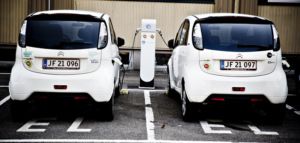News
Municipalities dropping electric cars with return of registration tax
This article is more than 9 years old.
Just 62 electric cars were purchased or leased in the first quarter of 2016

Electric car industry looking for a spark (photo: Dansk Energi)
Danish municipalities, which have been a key factor in the breakthrough of electric car sales in Denmark, have started looking away from electric cars.
A new survey by energy firm E.ON reveals two out of every three municipalities has scaled back their electric car purchases because of the registration tax return.
“When a large number of municipalities contend that the registration tax has put a damper on their desire to purchase electric cars, then it’s a serious issue,” said Lærke Flader, the head of branding for the Danish electric car advocacy association Dansk Elbil Alliance.
“The municipalities have been a critical driver of the spread of electric cars in Denmark. The politicians should take the curtailing sales very seriously and reconsider the tax this autumn.
READ MORE: Electric car sales in Denmark stagnating
Dwindling sales
The trend is down to the government’s decision last October to phase back the registration tax for electric cars over the next four years. The law came into effect on January 1 and the effects have been dire.
In the first quarter of 2016, municipalities purchased or leased just 62 electric cars – considerably down from the 323 the year before and the lowest since 2011.
The returning registration tax means new buyers pay 20 percent of the registration tax in 2016, followed by 40 percent, 65 percent and 90 percent in the subsequent years. By 2020, the tax will be reintroduced completely.










































